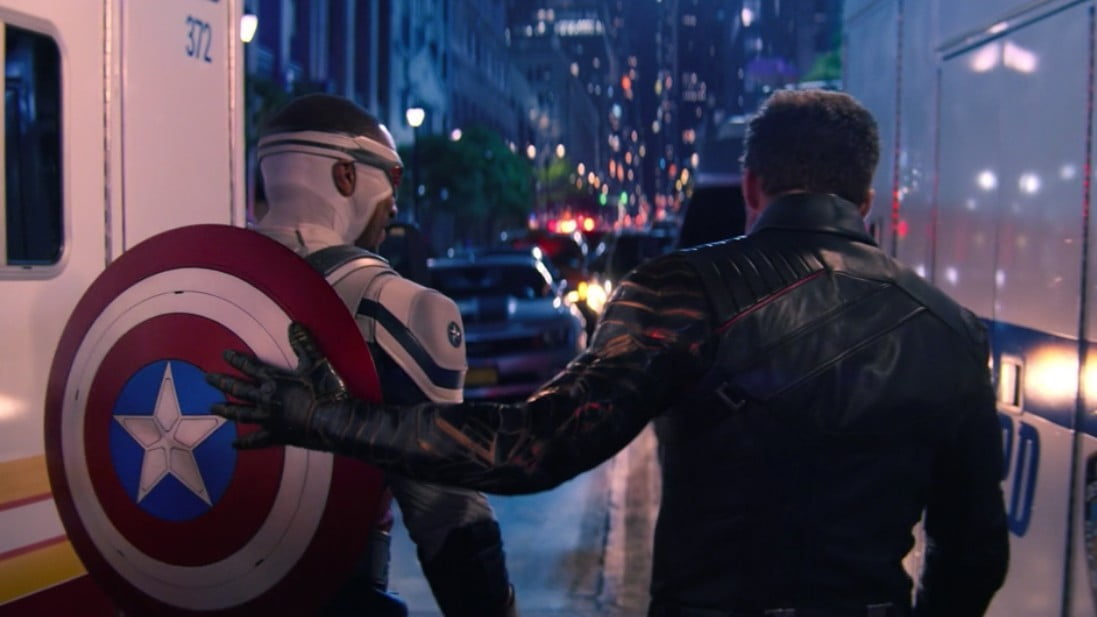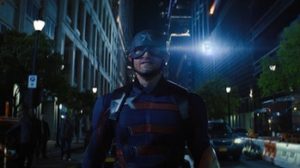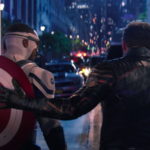
Who is Captain America?
Is he a man or a symbol? Does he represent a government or a people? Do the stars and stripes really stand for all Americans—or just a privileged majority?
That’s what The Falcon and the Winter Soldier (2021) has wrestled with from the first episode. And now we finally get some answers in the series finale: Episode 6, “One World, One People.”
The action really stands out here. Much like the pilot episode, the finale could easily hold up on the big screen next to any of the Captain America movies.
But what makes this finale great is what makes all the best parts of the MCU great: it’s never just about the action.
Over these six episodes, The Falcon and the Winter Soldier has forced its characters—and by proxy, its viewers—to wrestle with the complex realities of American symbolism and the Black experience. And that honest wrestling makes the finale that much more satisfying.
It was no secret that Sam would become the new Captain America. But who could’ve known it would be so satisfying? That it would feel so earned? That when he finally crashes in with the uniform and the shield, we would be cheering at our screens?
Unlike Steve Rogers, Sam Wilson isn’t a man out of time. He’s a man from right here.
Steve started from an uncomplicated, black-and-white worldview. He believed in the goodness of America and all of her symbols. To become worthy by the finale of Endgame (2019), he had to go on a journey and find heroism in a more complex vision of the world.
Sam Wilson, on the other hand, starts in complexity. He spends the show wrestling with the failures of America. He has to fight his way through to reclaim that American symbolism, to find a goodness worth fighting for. So now, as he finally dons the stars and stripes, they’re no longer a trite endorsement of white-washed history. They’re a vision of what America could be.
In our divided times, we need stories like this. We need stories to show us an honest path through cynicism. Not a path of blind acceptance, like the early days of Steve Rogers. Not a path of arrogant defiance, like John Walker. Not a path of defeatism, like Isaiah Bradley. We need stories that acknowledge failure but move forward, that help us discover our own capacity for heroism.
John Walker’s version of Captain America demanded respect from others. He stood over his fans like a celebrity. And if you weren’t on his side, you were an obstacle.
But Sam Wilson’s Captain America earns the respect of others. He calls the heroism out of everyday people—whether that’s a helicopter pilot in a hostage crisis or a politician holding the fate of the world. He’s not a towering, aloof figure saving helpless citizens. Oddly enough, his lack of super-strength is his greatest superpower.
With all that said, not everything lands in this finale. John Walker and Sharon Carter stand out as two weaker points.
 In my opinion, the show miscalculates our feelings toward John Walker. Just two episodes ago, in maybe the darkest scene of the entire MCU, we watched him brutally murder a man. We then watched him try to do the same to Sam.
In my opinion, the show miscalculates our feelings toward John Walker. Just two episodes ago, in maybe the darkest scene of the entire MCU, we watched him brutally murder a man. We then watched him try to do the same to Sam.
Now we watch him turn from revenge and choose to save others. But that’s just not enough to erase the image of the bloody shield. We needed a few more steps between “crazed murderer” and “likable antihero.”
And then there’s Sharon Carter. By the time they finally come out and say, “You’re the power broker,” her character is so alien to us that the reveal has no impact. She’s already so unmoored from the hero we met in Captain America: Winter Soldier that we have no anchor point to make this twist work.
Perhaps what truly completes this series is the meta-knowledge that a new Captain America movie is actually in development. Sam isn’t just taking up the role in-universe; he’ll be headlining a real franchise.
If there were any doubts about replacing Steve Rogers, this finale puts them to rest. We get to see the new Cap in action. He’s not Steve. Nor should he be. He’s Sam Wilson, and he’s Captain America.



![[REVIEW] ‘HEART ATTACK’ IS A VARIANT ON AN OLD TROPE](https://geekd-out.com/wp-content/uploads/2019/11/heart-attack_fc98ec309a-150x150.jpg)
